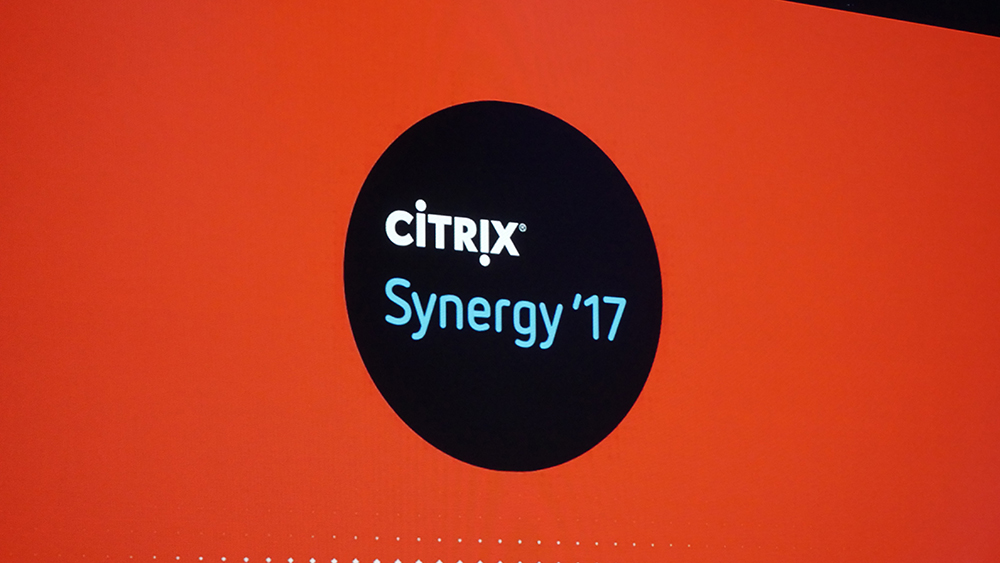View from the airport: Citrix Synergy 2017
Delivering on promises and transitioning to security are the name of the game in Orlando


Sign up today and you will receive a free copy of our Future Focus 2025 report - the leading guidance on AI, cybersecurity and other IT challenges as per 700+ senior executives
You are now subscribed
Your newsletter sign-up was successful
When is a security company not a security company? When it's Citrix or at least, that's what Citrix would like you to believe.
As expected, the company laid it on thick this year with the security message, which was embodied in announcements about the "software-defined perimeter" (a concept rather than an actual product) and Citrix Workspace Service.
CEO Kirill Tatarinov was adamant in both his keyote and a subsequent press conference that the company's positioning as a security firm was both natural and obvious. Indeed, his mantra for the week was "it's not an accident".
Speaking to me in an exclusive interview (which will be published here in the coming days), he said the move was prompted by feedback from the company's customers.
"Shortly after joining in January of 2016, I spent a lot of time with customers ... who said: 'Hey, security's our number one priority. We think of you as somebody who really helps us address it, and you never talk about it. Not only are you hurting yourself, you're hurting your ability to serve us better, because our budgets are shifting towards security and while we think that you're a security vendor, you don't help us convince our buying centres that you are," he told me.
I can very much see this being the case, particularly given that security was also a big topic at Synergy 2016. But there was a glimmer of it before Tatarinov joined the company as well, which maybe laid the groundwork for this aggressive new messaging.
Do I think it will fly with customers? Maybe the problem at the moment is that every company wants to be known as a security company. HPE is in on the act too, as is Dell Technologies, even when you take RSA out of the equation. It's obvious why this trend is happening: security is the number one priority for businesses everywhere, and is likely to remain so for some time, owing to the huge number of data breaches making regular headlines. But everyone claiming to be in the security space is going to wear thin sooner or later.
Sign up today and you will receive a free copy of our Future Focus 2025 report - the leading guidance on AI, cybersecurity and other IT challenges as per 700+ senior executives
Moving away from security, IoT wasn't as big a priority as I had expected it to be, which I found somewhat surprising, although the growing relationship between Citrix and Microsoft was allocated a fairly hefty portion of time (complete with a video from Microsoft CEO Satya Nadella), which I hadn't foreseen but is obvious in hindsight. Indeed, Tatarinov made a point of spelling out to the audience repeatedly how the company has delivered on promises made at last year's show in Las Vegas.
Overall, though, the conference seems to have been a success customers who I spoke to around the show were excited by the new products on offer, even if there were only a few launched at the event, as well as the ideas presented at the various sessions outside the main keynotes.
The proof in the pudding for Tatarinov's new strategy won't come until a year or so down the line, in my opinion. But be sure that I will be watching carefully to see how all this evolves.

Jane McCallion is Managing Editor of ITPro and ChannelPro, specializing in data centers, enterprise IT infrastructure, and cybersecurity. Before becoming Managing Editor, she held the role of Deputy Editor and, prior to that, Features Editor, managing a pool of freelance and internal writers, while continuing to specialize in enterprise IT infrastructure, and business strategy.
Prior to joining ITPro, Jane was a freelance business journalist writing as both Jane McCallion and Jane Bordenave for titles such as European CEO, World Finance, and Business Excellence Magazine.
-
 ITPro Best of Show NAB 2026 awards now open for entries
ITPro Best of Show NAB 2026 awards now open for entriesThe awards are a fantastic opportunity for companies to stand out at one of the industry's most attended shows
-
 Mistral CEO Arthur Mensch thinks 50% of SaaS solutions could be supplanted by AI
Mistral CEO Arthur Mensch thinks 50% of SaaS solutions could be supplanted by AINews Mensch’s comments come amidst rising concerns about the impact of AI on traditional software